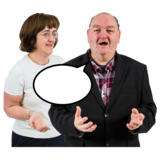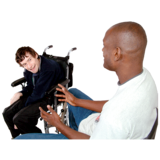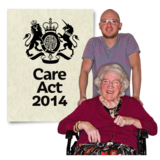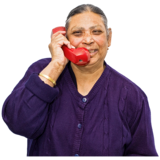Support to make decisions - advocacy

Your social worker must make sure that you are fully involved in any conversations and decisions about your life and your care and support.
You might like to have a family member or friend with you to help you understand and communicate information and make decisions and plans.
This type of support is called advocacy.
The person who helps you is called an advocate.

Advocates can help you to:
- understand and remember important information
- use that information to make decisions
- tell people your wishes and how you feel.
They can help you to understand your rights, and to do things like write letters or emails, make telephone calls and take part in meetings.
They will also speak up for you if you need them to.

You might need an advocate to support you:
- when you first have a conversation with a social worker. This is also called a needs assessment.
- when you are planning the care and support you need to help you live your life
- in review conversations with your social worker
- if you are involved in conversations about abuse or neglect.

Your social worker must make sure that your advocate is the right person to support you.
The right person is called an appropriate individual.
An appropriate individual could be someone you know, like a family member or a friend.
An appropriate individual cannot be:
- someone who is paid to support you, like a doctor, social worker or care worker
- someone you do not want to support you
- someone who is unlikely to be able or available to support you
- someone who is part of a safeguarding enquiry or who has been judged to have failed to prevent abuse or neglect.

If you don’t have an appropriate individual who can help you, the law says you have a right to an independent advocate.
An independent advocate is someone who works for an advocacy organisation.
You can ask for an independent advocate or your social worker might suggest that an independent advocate could help you.

You do not have to pay for an independent advocate.

In Doncaster, VoiceAbility provide free advocacy.
Telephone: 0300 303 1660
Email: helpline@voiceability.org
Website: VoiceAbility - Make a referral
